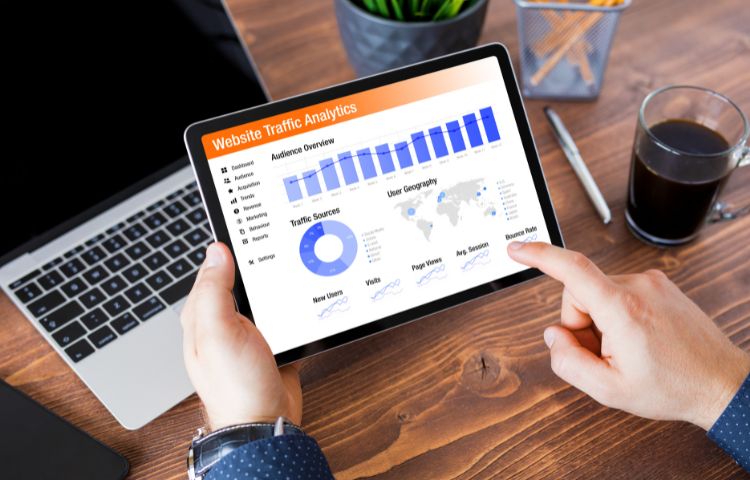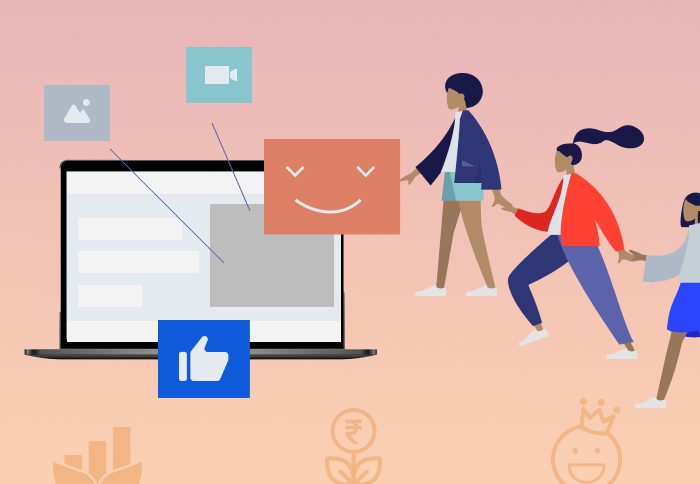

Prefer to listen instead? Here’s the podcast version of this article.
Understanding your website’s visitors is key to a successful online strategy. But many people don’t realize how much valuable data is gleaned from studying how people behave on a website. By tracking and analyzing visitor behavior, website owners can gain powerful insights into what’s working and not, identify potential areas for optimization, and make data-driven decisions about design and content. In short, visitor behavior intelligence (VBI) can help businesses get the most out of their website by providing a deeper understanding of website users and their needs.
Visitor behavior intelligence (VBI) is a relatively new field that combines aspects of psychology, sociology, and marketing. VBI is designed to help businesses better understand their customers and visitors’ behavior to improve the overall experience and conversion. Different methods are used in VBI, but one of the most common is visitor tracking. Visitor tracking involves using technology to track the movements and actions of visitors as they move around a website. This data can then be analyzed to identify patterns and trends in behavior and can come from a variety of sources, such as web analytics, heat maps, session recordings, click tracking, and form abandonment analytics.
Understanding visitor behavior can be hugely beneficial for businesses. It can help them to optimize their websites and make more informed marketing decisions. In today’s competitive marketplace, anything that gives businesses an edge is worth considering.
By understanding visitor behavior, website owners can make changes that result in more website traffic and conversions. For example, if you see that most visitors are leaving your site after viewing only one page, consider changes to your site’s design or content in order to keep visitors engaged.
There are a few different ways that brands can use visitor business intelligence on websites:
Heat map tools like Hotjar, Mouseflow, or FullStory are a great way to get insights into how users interact with a website. Heat maps are visual representations of where users are clicking on web pages. By tracking mouse movements, clicks, and scrolls, businesses can see which areas of the website are getting the most attention and which areas are being ignored. This information can be invaluable in helping optimize a website for better user engagement.
Use session recordings to watch what visitors do on your site. Session recordings let businesses “watch” as real people use the site to see exactly where they’re getting stuck or confused. This information can help identify usability issues that inform changes to improve the user experience.
Form abandonment analytics provide insights into why people leave forms without completing them. This data can be incredibly valuable in helping identify where users are struggling in an effort to optimize forms for better conversion rates. Common reasons for form abandonments include a form that is too long or complex, errors such as required fields that aren’t marked, or simply that the user is not ready to commit.
Use click tracking to understand users’ interests. Click tracking will identify which links people are clicking on (and which ones they’re ignoring). Knowing what users are interested in can inform product strategy and aid remarketing or retargeting efforts.
Use scroll mapping to see how far down people scroll on web pages. Scroll mapping is helpful in determining the prioritization of information on a page.
Use exit intent popups to prevent visitors from leaving the site too soon. Exit intent popups display a message when it detects someone is about to leave a site without taking action (such as subscribing to your email list). This information can help keep visitors engaged so they don’t leave before taking action.
Use live chat to provide real-time assistance to visitors who need it. More importantly, live chat allows businesses to log and collect real-time data on users’ challenges with the website. In aggregate, what users share will enable businesses to identify common issues that impact user experience.

There are several reasons why businesses should use VBI to inform their decision-making. First and foremost, it can help boost sales and profits. By understanding what people want and need, companies can stock inventory accordingly and design a website to make it easy for customers to find what they’re looking for. Additionally, VBI can help increase customer loyalty and repeat business. If people have a positive experience on the site, they’re more likely to return.
Finally, VBI can save time and money. Instead of making decisions based on guesswork or intuition, businesses can lean on data-driven insights to make informed decisions about where to focus efforts. This can prevent costly mistakes and redirect resources where they’ll have the most impact. Here are just a few of the benefits of using visitor behavior intelligence.
Understanding your website visitor’s behavior is crucial to the success of a website and business. Applying cognitive neuroscience principles can help decipher what information is most important and how to present it in a way that will be persuasive. However, if all of this sounds daunting, don’t worry. Our experts help you understand everything and create a plan that will work for you. Contact us today to get started on understanding your visitors better and increasing your website’s metrics!
WEBINAR